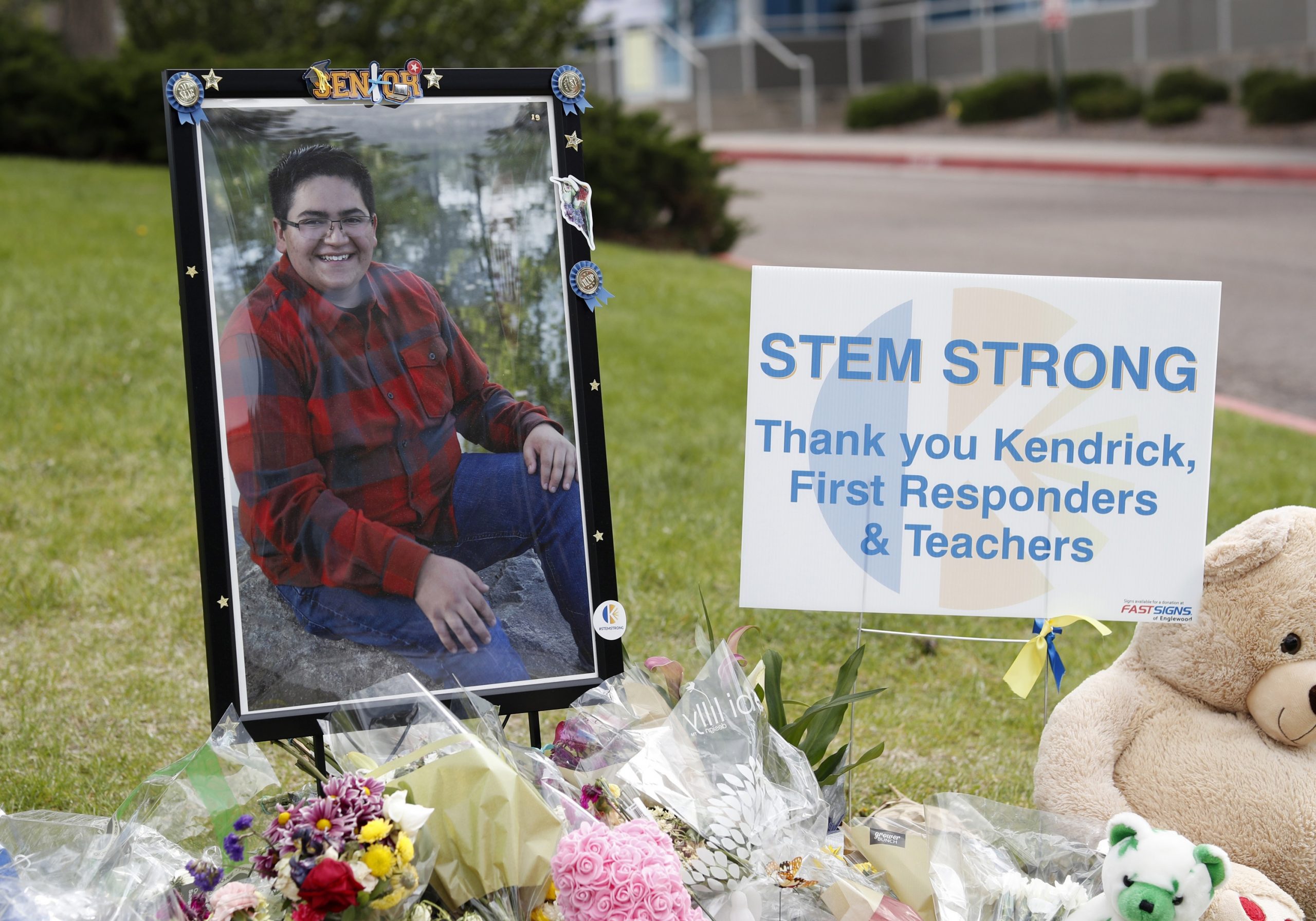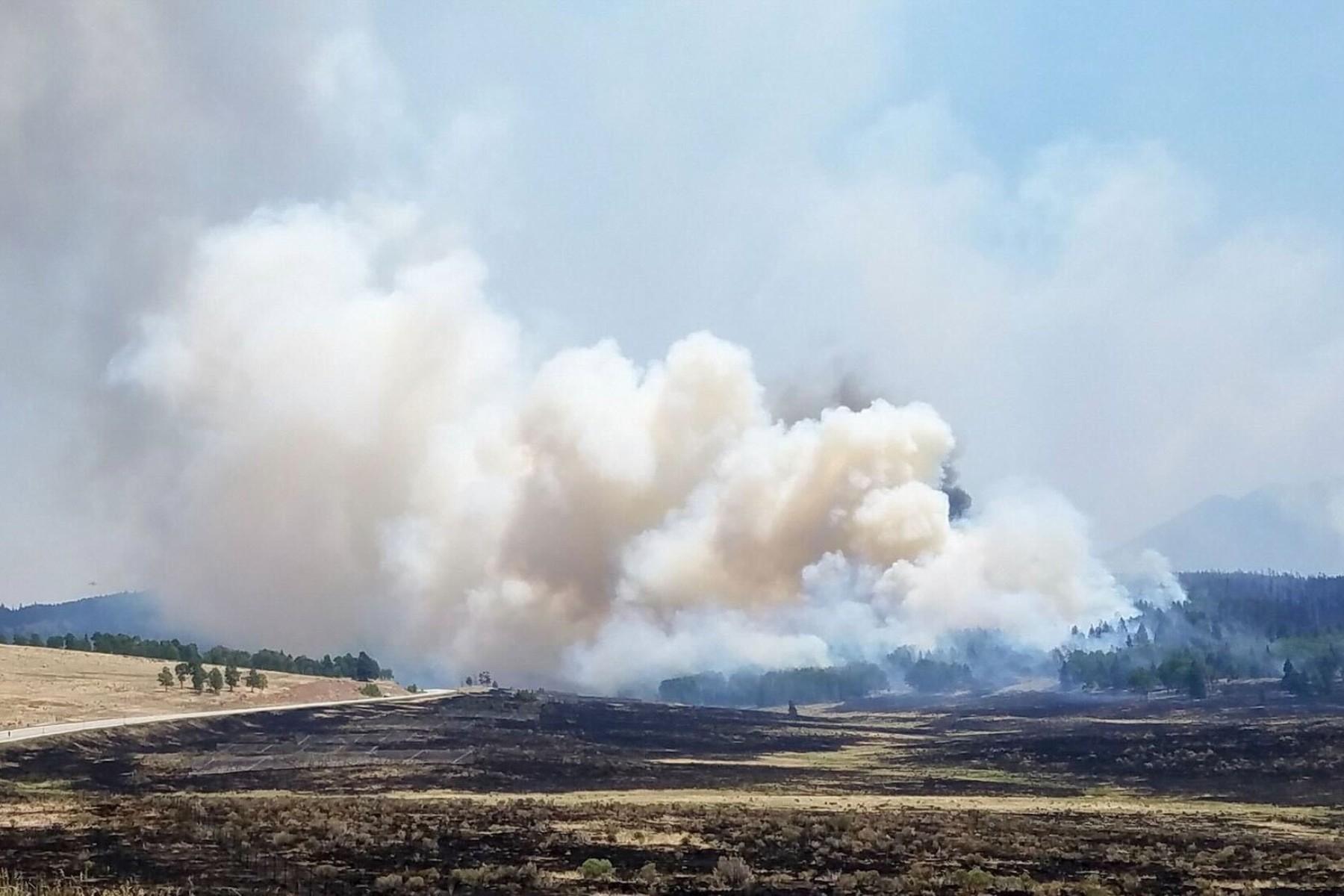
When STEM School senior Devon Erickson brought several loaded guns to school on May 7, 2019, he had multiple opportunities to alert teachers or change his mind before the attack that killed and injured his fellow students, prosecutor George Brauchler told jurors on Thursday as Erikson’s trial opened.
Though Snapchat videos show that Erickson was pressured by his friend, Alec McKinney, to break open his parents’ gun safe and was under the influence of cocaine at the time, he had several interactions with other students, teachers and a nurse right before he went into the classroom, Brauchler said.
“In this room is terror, in this room is every parent, every teacher’s worst nightmare. In this room are bullets, students’ blood and the body of a hero,” Brauchler said. “This plan was as diabolical as it was deadly.”
Both prosecutors and Erickson’s defense lawyers made their opening arguments Thursday in the case against Erickson, now 20. Erickson faces 46 criminal charges in connection with the shooting, which killed fellow student Kendrick Castillo, and injured eight others.
Brauchler accused Erickson of firing his gun four times before it jammed and he was taken down by several other students who, Brauchler said, had to forcefully pry the weapon from his hand.
Among those he shot was Castillo, who was the first student to rush Erickson when he entered the classroom. Brauchler also said Erickson shot and injured two other students, Josh Jones and Alex Watford, in two classrooms.
One of Erickson’s defense attorneys, Julia Stancil, called Castillo a hero for running straight towards Erickson, but said that when he jumped on the attacker, Erickson’s gun, a Glock semi-automatic pistol, discharged.
Stancil told jurors that Erickson is “not a demon” and “not a monster” and acted under the influence of drugs and a bullying, homicidal friend.
“He doesn’t intend to kill. He doesn’t want to hurt anybody,” Stancil said. “This is not a kid who is trenchcoat-clad, loaded up with guns and walking confidently into a school to start shooting it up. Not at all.”
McKinney pleaded guilty in 2020 for his role in the shooting. He was 16 at the time and his mandatory minimum sentence is life with the possibility of parole after 40 years.
Erickson was 18 at the time of the shooting and faces charges as an adult; if convicted of first degree murder, he could face life without parole.
Stancil portrayed Erickson as a vulnerable senior in high school with home problems when he fell in with McKinney.
Erickson’s mother was in treatment in Arizona, his father was absent and preoccupied with his mother and the whole family was under stress, Stancil said. McKinney swooped in with his friendship, his suicidal thoughts and a lot of drugs. Stancil told jurors Erickson was 90 pounds the day of the shooting and had been up for days doing all kinds of drugs, including methamphetamine, cocaine and various over-the-counter drugs in high doses, including cough syrup.
Stancil said his physiological state was bad, which contributed to his bad decisions.
“It’s a case about manipulation, it’s a case about how Devon Erickson’s home life came undone, leaving him neglected at a critical time,” Stancil said. “It’s a case about how rapidly a young person’s rationality, ability to make decisions, deteriorates after a few months of serious drug abuse, sleep deprivation and weight loss.”
But Brauchler painted a different picture of that day at the STEM School, where students in the British Literature classroom, mostly seniors just a week or so from graduating, were watching The Princess Bride.
He told jurors that there were several moments before the shooting started at 2 p.m. that Erickson could have alerted someone about what McKinney wanted to do.
The school’s security camera footage showed the two arriving at school together with the weapons secretly stowed, some in a guitar case, and then separating at the door, each of them going to their different classes.
When Erickson got to the British Literature class, he told the teacher, Lauren Harper, he felt ill. She sent Erickson to the nurse with another student, Mitchell Kraus, along to accompany him. During that time, Brauchler argued, Erickson could have said something to his teacher, or warned Kraus. He also could have told the nurse, who gave him a cold pack for his forehead and a bed to lay down on.
“Fourteen minutes he’s inside that nurse’s office and he never alerts anyone,” Brauchler said, noting that while Erickson was laying there he did text a friend in the class to try and get him out before he returned. It didn’t work.
“That didn’t stop his plan,” Brauchler said.
Devon Erickson’s trial is scheduled to run through late June. It has been delayed several times because of the pandemic. He’s been in custody since being arrested on the day of the shooting two years ago.
Brauchler was the elected 18th Judicial District Attorney at the time of the high-profile shooting and was in the courtroom for all the court appearances. His term ended in January and now John Kellner runs that office, but he asked Brauchler to stay on to lead the prosecution since he was on the case from the beginning.
Both sides gave some hints as to who jurors will hear from in the five-week trial. Brauchler said prosecutors will call on lots of students and victims of the shooting, teachers and counselors. Stancil said jurors may hear from McKinney, who is serving time already, as well as doctors who could testify to the effects of Erickson’s drug use and sleep deprivation.
The trial continues Friday.









